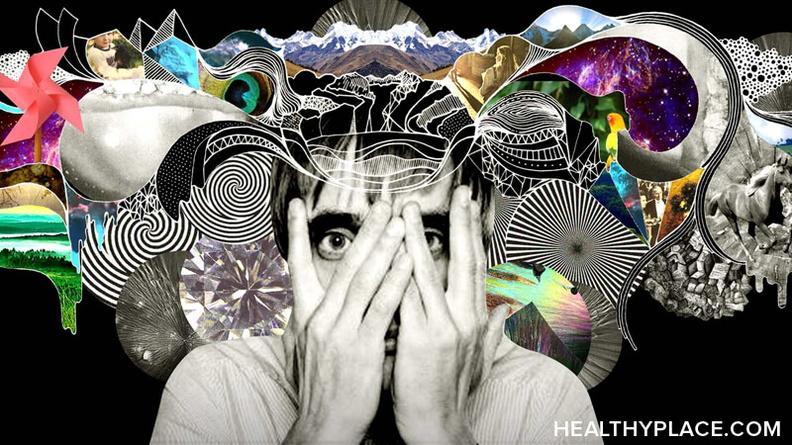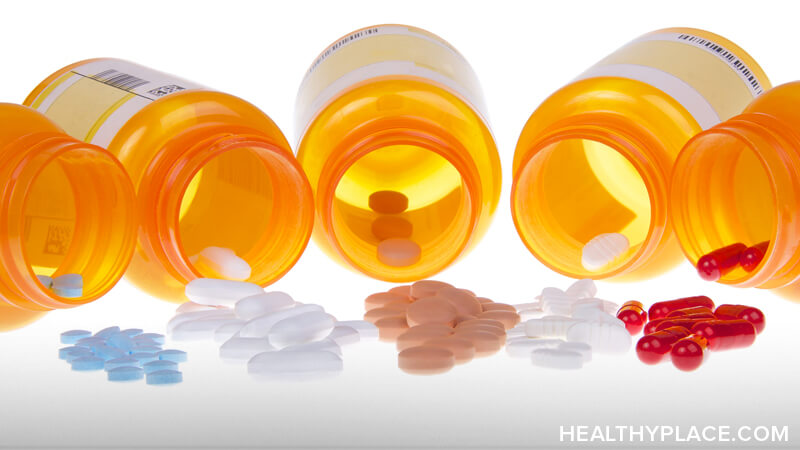Bipolar Misdiagnosis: Why It Happens So Frequently?

Bipolar disorder misdiagnosis happens frequently because bipolar disorder can be difficult to detect. Some people go as long as 10 years or more before correcting a bipolar misdiagnosis.1
This has to do with the dual nature of the disorder. When someone is feeling manic or hypomanic (bipolar mania), they are full of energy and often feel good. They are "high on life" and seldom seek treatment. By contrast, they often seek treatment when they fall into a major depressive episode (bipolar depression). At that time, they describe only depressive symptoms to their doctor. Therefore, it is common for the individual to be incorrectly diagnosed with depression instead of bipolar disorder.1 (Take a bipolar screening test or our bipolar quiz to help determine if you might have symptoms of bipolar disorder.)
Bipolar disorder misdiagnosis also occurs because bipolar disorder shares many of the signs and symptoms associated with other psychiatric illnesses, such as anxiety disorders and schizophrenia. 2
Unfortunately, no laboratory test can detect bipolar disorder and bipolar disorder misdiagnosis remains common. However, a simple questionnaire can help a doctor determine if someone has common symptoms of bipolar disorder 4 so to avoid a bipolar disorder misdiagnosis of depression or other mental illness. This questionnaire is called the Mood Disorder Questionnaire, or MDQ. The MDQ is a checklist that helps a doctor identify bipolar-related symptoms.4
How to Avoid a Bipolar Misdiagnosis
A diagnostic exam is used in diagnosing bipolar. This exam contains:
- A complete psychiatric history- details current and past symptoms, and the symptoms or diagnoses of relatives. Bipolar disorder has a strong genetic component. Therefore, if there is a family history of depression or bipolar disorder, there's a good chance the patient may have it as well.
- A complete medical history and physical exam- to rule out any other illness that may be mimicking the symptoms of bipolar disorder. HIV, a brain tumor or head injury, diabetes, epilepsy, Lupus, Multiple Sclerosis, a salt imbalance or thyroid disorder can produce bipolar-like symptoms.
If no other cause is found and the current symptoms have been of significant duration or caused significant impairment in functioning, a patient may then be diagnosed with bipolar disorder.
The Misdiagnosis of Bipolar Disorder Causes Many Problems
Early diagnosis and treatment for bipolar disorder are essential, but they often don't happen. Treatment of bipolar disorder is often delayed as many people with bipolar disorder do not know they have it. Some do not seek treatment because they are ashamed of what they feel, while some are incorrectly diagnosed with other illnesses, such as depression or schizophrenia.1,2
Getting the appropriate treatment for bipolar disorder can help alleviate the following risks:
- Suicide
- Alcohol abuse, substance abuse
- Problems at school, failing out of school
- Divorce
- Not being able to function at work
- Alienating oneself from friends and family
- Worsening symptoms of depression and mania/hypomania
- Making the bipolar disorder more difficult to treat 3
What Happens After a Bipolar Misdiagnosis Is Corrected?
Patients diagnosed with bipolar disorder will be evaluated for bipolar treatment. The basic elements of bipolar treatment are bipolar medication, bipolar therapy, support, and education.
After a corrected misdiagnosis of bipolar disorder, the patient will be started on medication to stabilize his or her moods and address acute symptoms. Prescription medication may help control the number of episodes a person experiences; which is critical as the more episodes a person experiences, the more difficult bipolar disorder is to treat.
In order to manage bipolar disorder it in the long run, patients must learn how to cope with life stressors in healthier ways. Such awareness is difficult to gain without professional help. Several types of therapy are available including cognitive behavioral therapy and social rhythm therapy.
Psychotherapy, also known as "talk therapy" permits a patient to identify the impact of the disorder on his or her life and to begin recognizing events and thinking patterns that may lead or have led to episodes of illness. This process of therapy occurs within a safe and private setting that is difficult to create otherwise.
Other Illnesses Often Accompany Bipolar Disorder
People who develop symptoms of bipolar disorder when they're relatively young and remain undiagnosed are more likely to also develop alcohol abuse and other substance abuse problems.2 These problems worsen the course of bipolar disorder and increase the number of hospitalizations.2
Other mental disorders associated with bipolar disorder include:
- Anorexia nervosa
- Bulimia nervosa
- Attention deficit/ hyperactivity disorder
- Panic disorder, social anxiety disorder, and other anxiety disorders
A bipolar disorder misdiagnosis can be disheartening, but once corrected, proper treatment begins. Talk to your doctor and discuss how you can remedy a prior misdiagnosis of bipolar disorder.
APA Reference
Tracy, N.
(2021, December 28). Bipolar Misdiagnosis: Why It Happens So Frequently?, HealthyPlace. Retrieved
on 2025, April 30 from https://www.healthyplace.com/bipolar-disorder/bipolar-diagnosis/bipolar-misdiagnosis-why-it-happens-so-frequently








